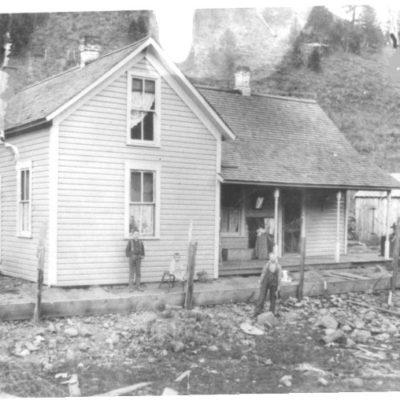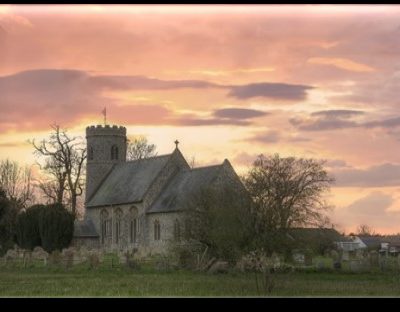Conservative Mennonite Conference

The Conservative Mennonite Conference is a Christian fellowship body of evangelical Mennonite churches in North America. They live to glorify God. They equip leaders and congregations for worship, fellowship, teaching, and service. They structure churches with an evangelical, Anabaptist and conservative theology.
The Conservative Mennonite Conference was known as the Conservative Amish Mennonite Church until 1954. They hold strictly to the Mennonite principles of non-resistance and non-conformity. Leadership and ordination are confined to men; however, women may participate in the ministry.
The headquarters of the Conservative Mennonite Conference is the Rosedale Bible College, and the offices of Rosedale Mennonite Missions which are located in Irwin, Ohio.
History
The Conservative Mennonite Conference is rooted in the Amish Mennonite part of Anabaptism. The beginning of the Conservative Mennonite Conference was in 1910. Their mission is to maintain peace and unity and to spread the gospel like Christ has commanded.
The first American settlement of the Amish Mennonites was in Berks Country, Pennsylvania between 1710 and 1720. By the middle of the 19th century other settlements in Chester and Lancaster Pennsylvania to Iowa were formed. The ministers of the Amish Mennonites organized a conference to serve these newly formed churches.
There were three district conferences formed in 1878; The Eastern, the Indiana-Michigan, and the Western conference. There were two groups that remained detached from the conservative movement the Old Order Amish and the Conservative Amish Mennonite Conference. Most of the churches in the conference movement merged with the other Mennonite groups. The Old Order Amish worshipped in private homes and spoke the German language; they rejected modernization in worship and in their lifestyle.
There were some congregations who were in the middle of the conservative Old Order Amish and the progressive conference Amish Mennonites. These churches did not join the Amish Mennonite conferences. Representatives of these congregations met in conference in Pigeon, Michigan November 25, 1910. They adopted the name Conservative Amish Mennonite Conference. The name Amish was dropped in 1957.
The Conservative Mennonite Conference was interested in missions. They opened an orphanage in Grantsville, Maryland in 1913. International missions started in 1961. Their Bible School was started in 1950 near Berlin, Ohio. Later this Bible School was moved to Rosedale, Ohio.
Belief
The Conservative Mennonite Conference believes God is three Divine Persons; the Father, the Son and the Holy Spirit who are distinct in functions but are equal in power and in glory. The triune nature of God is expressive. They believe Jesus Christ is one with the Father and the Holy Spirit in the triune Godhead, the eternal Word and divine Son of God. They believe this was before His incarnation. Jesus Christ is believed to be eternally with God the Father and was God. They believe Jesus was fully God and fully man.
The Conservative Mennonite Conference believes the Scriptures include both the Old Testament and the New Testament. They believe these are the Word of God which is a supernatural revelation from God to mankind. They believe it is verbally inspired by the Holy Spirit through human instrumentality. They believe the Scriptures are without error in the original writings and are the final authority for their faith and practices. They believe the New Testament is the fulfillment of the Old Testament and the perfect rule for the Christian church.
The Conservative Mennonite Conference believes the gifts of the Holy Spirit are meant for the church of Jesus Christ from Pentecost until the return of Christ. The Holy Spirit distributes these gifts at His will. Speaking in tongues is recognized and it is permitted, but it is not required.
The Conservative Mennonite Conference believes the return of Christ is personal, certain, and imminent. They believe the dead will be resurrected, the just to eternal glory and bliss in heaven and the unjust to everlasting punishment and torment in hell. They believe satan, death, and hell will be cast into the lake of fire and the glorious reign of the Kingdom of God will be eternally fulfilled.
The Conservative Mennonite Conference believes in the ordinance of Baptism, which may be performed by pouring or full immersion, Communion and Feet Washing. They believe Baptism is symbolic of the cleansing of the blood of Christ in regeneration and a new birth.
They believe Communion is an ordinance instituted by Jesus Christ to symbolize the New Covenant. The bread and the cup are the symbols that commemorate the broken body and the shed blood of Christ. They believe this is the spiritual unity and fellowship of the body of Christ.
The Conservative Mennonite Conference thinks a believer is protected in obedience to Christ. This protection is conditional rather than unconditional. Salvation is an on going living faith in Christ.
The Conservative Mennonite Conference believes miracles are works of God. They believe God intervenes in the natural and usual order of His creation. They believe God does miracles today as He chooses. They do not believe miracles are a test of faith; this is because God may choose not to do a miracle in the presence of faith.
Cite Article Source
MLA Style Citation:
Holstein, Joanne “Conservative Mennonite Conference:.” Becker Bible Studies Library Jan 2006.<https://guidedbiblestudies.com/?p=2664,>.
APA Style Citation:
Holstein, Joanne (2006, January) “Conservative Mennonite Conference:.” Becker Bible Studies Library. Retrieved from https://guidedbiblestudies.com/?p=2664,.
Chicago Style Citation:
Holstein, Joanne (2006) “Conservative Mennonite Conference:.” Becker Bible Studies Library (January), https://guidedbiblestudies.com/?p=2664, (accessed).


